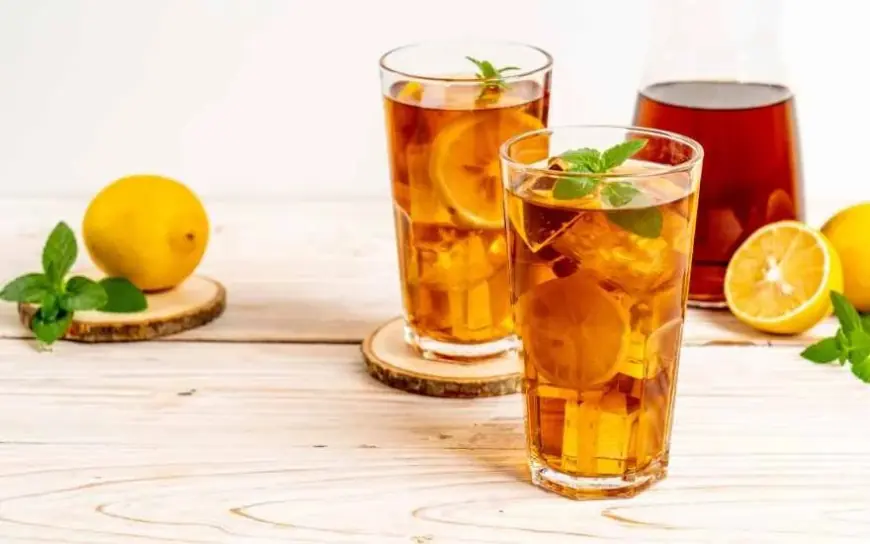Alcoholic Tea Market Innovations Lead to a Diverse Range of Flavors and Health-Forward Product Offerings
Alcoholic tea market thrives with innovative flavors and health-forward options, attracting consumers seeking functional, flavorful, and clean-label alcoholic drinks.

The alcoholic tea market is witnessing unprecedented innovation, transforming from a niche category into a global trend fueled by consumer demand for flavorful, health-conscious, and lifestyle-aligned alcoholic beverages. As preferences shift away from high-calorie, traditional alcohol options, brands are tapping into the power of tea to deliver exciting new products that blend taste, wellness, and creativity.
From herbal-infused blends to functional adaptogenic teas with a splash of alcohol, the product diversity within this market is growing rapidly. As a result, alcoholic tea is no longer just a spiked version of a classic beverage—it’s now a category defined by culinary sophistication, wellness-forward thinking, and trend-setting appeal.
Flavor Innovation Is Driving Consumer Engagement
At the core of alcoholic tea’s success is its vast and growing flavor diversity. Consumers today are far more adventurous, seeking bold and unconventional taste profiles that break away from the norm. Alcoholic tea offers a canvas for endless experimentation, combining traditional tea bases like black, green, oolong, and white with a variety of fruits, herbs, spices, and botanicals.
Popular combinations include:
-
Peach green tea with vodka
-
Hibiscus black tea with citrus and rum
-
Jasmine tea with gin and elderflower
-
Chai tea with whiskey and vanilla
-
Matcha tea with lemon and mint-infused spirits
These unique pairings not only satisfy the modern palate but also encourage repeat purchases as consumers explore seasonal or limited-edition releases. Brands that continue to innovate in flavor are winning attention, shelf space, and loyalty from a wide range of drinkers—from casual sippers to connoisseurs.
Health-Conscious Formulations Attract Modern Consumers
Alongside flavor, health is a major pillar of growth in the alcoholic tea market. Today’s consumers, particularly millennials and Gen Z, are deeply invested in wellness and transparency. They read labels, track calories, and look for products that align with their values and goals. Alcoholic tea, with its low-ABV (alcohol by volume) and natural ingredients, perfectly fits this mold.
Many alcoholic teas contain:
-
Real brewed tea leaves for antioxidant benefits
-
Low sugar or zero added sweeteners
-
Botanicals like ginger, turmeric, or ginseng for digestive and immunity support
-
Adaptogens like ashwagandha or holy basil to reduce stress and promote balance
-
Non-GMO and organic ingredients to support a cleaner lifestyle
This combination of flavor and function allows alcoholic tea to serve not just as a drink of choice, but as a conscious indulgence that supports a balanced lifestyle.
Functional Beverages Meet Alcohol: A Category Transformation
One of the most exciting aspects of the alcoholic tea market is its evolution into the functional beverage space. By merging the benefits of tea and botanicals with a controlled dose of alcohol, brands are creating a new kind of experience—one that blurs the lines between wellness and recreation.
Functional alcoholic teas cater to consumers looking for:
-
Relaxation without heavy intoxication
-
A social experience that feels light and refreshing
-
Daily drinking options with minimal impact on health goals
This positions alcoholic tea as more than just an occasional treat—it becomes a part of everyday modern living, enjoyed with meals, during unwinding rituals, or as a healthier option at social gatherings.
Clean Labels and Sustainable Packaging Elevate Appeal
In addition to what’s inside the can or bottle, presentation and sustainability are playing a huge role in consumer purchasing decisions. Today’s shoppers are eco-conscious and brand-aware. They want to support companies that prioritize sustainability, ingredient sourcing, and ethical production.
Many leading alcoholic tea brands are responding with:
-
Minimalist, recyclable packaging
-
Plastic-free labeling
-
Transparency in sourcing (e.g., single-origin teas, organic certification)
-
Carbon-neutral production practices
This emphasis on sustainability not only builds brand trust but also positions alcoholic tea as a responsible and premium choice in the RTD (ready-to-drink) segment.
Market Outlook: Innovation Will Fuel Expansion
As innovation continues to accelerate, the alcoholic tea market is poised for sustained growth across both mature and emerging markets. Future product lines may include:
-
CBD-infused alcoholic teas
-
Zero-ABV or non-alcoholic variants for sober-curious consumers
-
Personalized blends through online platforms
-
Luxury tea-based cocktails in the premium hospitality segment
With growing consumer awareness, an expanding flavor library, and strong alignment with wellness and lifestyle trends, alcoholic tea is evolving into a category that appeals to a broad, global audience.
Conclusion
The alcoholic tea market is no longer just a trend—it’s a vibrant and expanding industry built on innovation, health-conscious choices, and diverse flavor offerings. As consumers continue to seek beverages that deliver both pleasure and purpose, alcoholic tea stands out as a smart, stylish, and satisfying option.
From its functional benefits to its clean-label formulations and endless flavor possibilities, alcoholic tea is leading the charge in the next generation of adult beverages. For brands ready to innovate and connect with conscious consumers, the future is bright—and steeped in opportunity.
What's Your Reaction?
 Like
0
Like
0
 Dislike
0
Dislike
0
 Love
0
Love
0
 Funny
0
Funny
0
 Angry
0
Angry
0
 Sad
0
Sad
0
 Wow
0
Wow
0















































